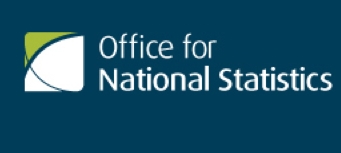The inflation rate has turned negative, dropping from the record CPI low of 0% last month, the Office for National Statistics has reported this morning.
It has dropped to -0.1% in the year up to April 2015, the ONS stated.
The official announcement this morning read: "This is the first time the CPI has fallen over the year since official records began in 1996 and the first time since 1960 based on comparable historic estimates.
"An annual fall in prices is often referred to as "negative inflation" or "deflation". Based on comparable historic estimates, the last time the UK saw consumer price deflation was in the year to March 1960, when prices fell by an estimated 0.6%.
"The largest downward contribution came from transport services - notably air and sea fares, with the timing of Easter this year a likely factor."
{desktop}{/desktop}{mobile}{/mobile}
Reaction
IFP board member Chris Williams CFPCM said: "The UK is now officially experiencing deflation for the first time since March 1960 when prices fell by 0.6% year-on-year. While prolonged deflation is dangerous, the UK is almost certainly going to see the return of inflation in the next few months as the dramatic fall in the oil price and the impact of a vicious supermarket price war fall out of the equation."
Mr Williams, chief executive of Wealth Horizon, added: "Nonetheless, investors cannot rest on their laurels. When inflation does return, it could do so very rapidly, and with interest rates still at record lows, it will become even more important to invest in assets which deliver a return well above the official inflation target of 2%."
Vanessa Owen, LV= head of retirement products, said: "The announcement that we have entered a period of deflation is a mixed blessing.
"For retirees who are often hit hardest by rising inflation falls in energy costs will be welcome. However, many retirees rely on the interest paid on their savings to boost their retirement savings and the prolonged period of low interest rates means many still struggle to make ends meet.
"Low interest rates have a negative impact on the interest that can be earned on cash as well as leading to lower annuity rates."
Calum Bennie, savings expert at Scottish Friendly said: "People shouldn't expect the novelty of current deflation to last for long. While the prices of some goods and services may continue to fall, providing some temporary relief to consumers, this is not a normal environment and savvy savers will be aware that deflation will not become a permanent fixture.
"People should make hay while the sun shines and put any extra cash away now into savings or stocks and shares ISA before the inevitable return to inflation."
According to Moneyfacts, today, all 859 savings accounts on the market beat inflation, and of these, 666 (149 no notice, 78 notice, 231 fixed rate bonds and 208 ISAs) are without restrictive criteria. It said the effect of inflation on savings means that £10,000 invested five years ago, allowing for average interest and tax at 20%, would have the spending power of just £8,684 today – a fall of 13.16%.
Charlotte Nelson, finance expert at Moneyfacts.co.uk, said: "While the low inflation rate is still being celebrated by those who can see their cash going further, savers looking to supplement their income are struggling with not only a lack of choice but abysmal savings rates.
"The withdrawal of the NS&I Pensioner Bonds sees the only decent rates removed from the market. We knew they weren't going to be around forever, but there is little else left for savers who are wrestling to get good deal.
"A staggering 138 savings accounts on the market pay 0.5% or less, but consumers can easily get over twice this amount on a best buy easy access account.
"The best fixed rate deal today pays 3.53% for five years; however, just five years ago you could open an easy access account paying 3.00%.
"Savers now need to shop around to chase down decent accounts and act fast when they find them. Good deals can get oversubscribed really quickly, so it pays to act before the deal is reduced or withdrawn completely."
Last month the ONS reported that the record low inflation rate of 0% continued into March. The previous month's figures for The Consumer Prices Index showed it had fallen to its lowest level on record and this has remained the same for March.
The month previous, January 2015, had been the record low before it fell to 0%, with inflation having dropped to 0.3%.

